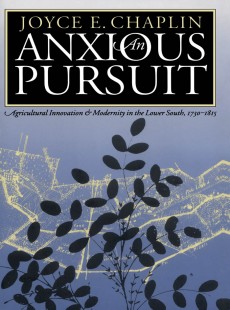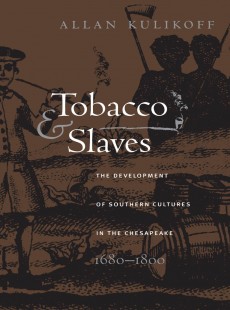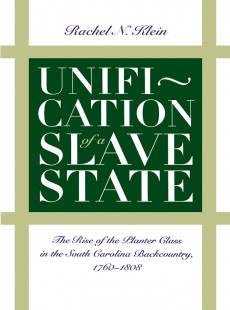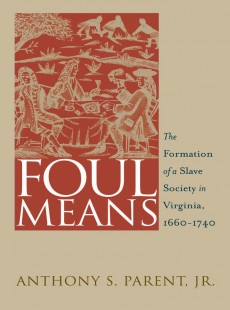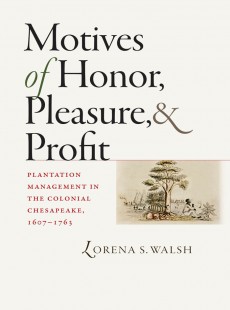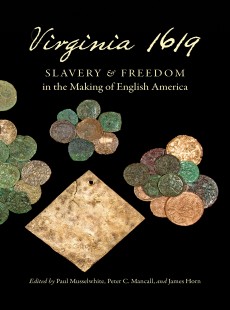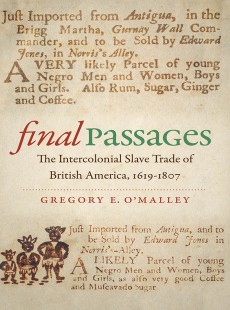
Final Passages
The Intercolonial Slave Trade of British America, 1619-1807
Gregory E. O'Malley
 Publisher: Omohundro Institute
Publisher: Omohundro Institute
Imprint: OIEAHC
Published: 08/2014
Reprint: 2016
Pages: 416
Subject: Social Science, History
Paperback ISBN: 9781469629841
eBook ISBN: 9781469615356
DESCRIPTION
This work explores a neglected aspect of the forced migration of African laborers to the Americas. Hundreds of thousands of captive Africans continued their journeys after the Middle Passage across the Atlantic. Colonial merchants purchased and then transshipped many of these captives to other colonies for resale. Not only did this trade increase death rates and the social and cultural isolation of Africans; it also fed the expansion of British slavery and trafficking of captives to foreign empires, contributing to Britain's preeminence in the transatlantic slave trade by the mid-eighteenth century. The pursuit of profits from exploiting enslaved people as commodities facilitated exchanges across borders, loosening mercantile restrictions and expanding capitalist networks.
Drawing on a database of over seven thousand intercolonial slave trading voyages compiled from port records, newspapers, and merchant accounts, O'Malley identifies and quantifies the major routes of this intercolonial slave trade. He argues that such voyages were a crucial component in the development of slavery in the Caribbean and North America and that trade in the unfree led to experimentation with free trade between empires.
LEARN MORE ABOUT THIS BOOK
ABOUT THE AUTHOR
Gregory E. O'Malley is associate professor of history at the University of California, Santa Cruz.
AWARDS
The Morris D. Forkosch Prize, American Historical Association (2015)
Frank L. and Harriet C. Owsley Award, Southern Historical Association (2015)
Elsa Goveia Book Prize, Association of Caribbean Historians (2014)
REVIEWS
"By taking up the traffic in human chattel after the Middle Passage, O’Malley fundamentally transforms our understanding of the transatlantic slave trade and its consequences in the English Atlantic world. . . . A critical contribution to scholarship on the economics of the slave trade, and on the lived experience of its victims."
--Jennifer L. Morgan, New York University
"Just when the idea was taking root that all perspectives on the transatlantic trade in enslaved Africans had been explored, O’Malley has opened up an entirely new field. His focus on the intercolonial movement of imported Africans illustrates that where millions of Africans ended up living their enslavement had little relation to where they entered."
--Sir Hilary Beckles, University of the West Indies at Cave Hill, Barbados
"Hundreds of thousands of Africans faced a second slave voyage before they reached their ultimate destination—an experience that scholars have so far inexplicably ignored. Final Passages fills this large gap in the literature with meticulousness and eloquence. . . . The definitive work on the subject for many years to come."
--David Eltis, Emory University
"A new and arresting perspective on the British slave trade in the early modern world."
--Choice
“A refreshing and authoritative history of the English slave trade.”
--Journal of American History
“In this rigorously-argued and well-sourced volume, Gregory E. O’Malley establishes himself as being on the cutting edge of scholarship with regards to the complexities of the transatlantic slave trade.”
--American Historical Review
"Fills a major gap in the literature….The standard for many years to come."
--Journal of Southern History
“Groundbreaking...enhances the scope and complexity of our understanding of the slave trade.”
--New England Quarterly
“Important scholarly insights to our collective understanding of the Atlantic slave trade, and, more broadly, Atlantic slavery, continue to arrive with increasing frequency every year. Few, however, are as likely to provide such major quantitative contributions and qualitative insights as Greg O’Malley’s exemplary first book, Final Passages.”
--Journal of British Studies
RELATED TITLES


